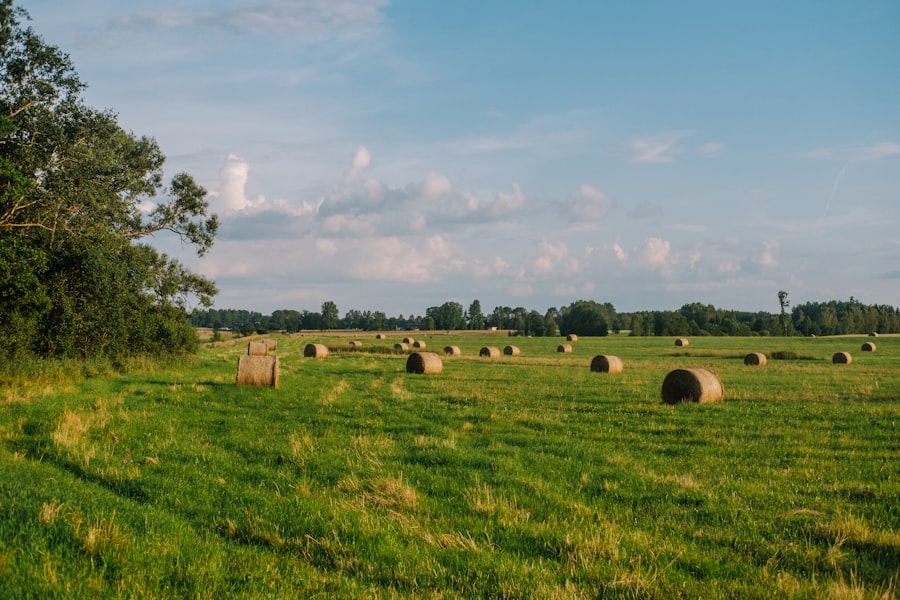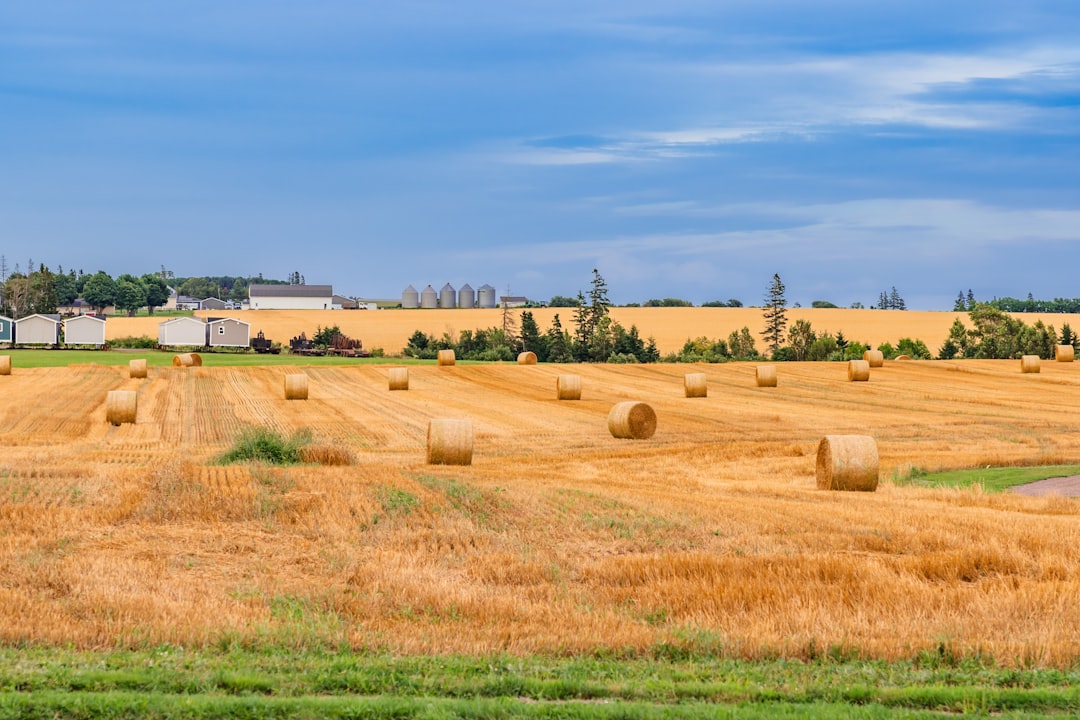Farmland investment has emerged as a compelling opportunity for investors seeking to diversify their portfolios and tap into the agricultural sector’s potential. This form of investment involves purchasing land primarily for agricultural production, which can include crops, livestock, or other agricultural products. The allure of farmland lies not only in its tangible nature but also in its historical resilience as an asset class.
Unlike stocks or bonds, farmland is a physical asset that can provide both capital appreciation and income generation through leasing or direct farming operations. Investors are increasingly recognizing the value of farmland as a hedge against inflation and economic downturns. As global populations continue to rise, the demand for food and agricultural products is expected to increase, making farmland a potentially lucrative investment.
Understanding the dynamics of farmland investment requires a grasp of agricultural trends, market conditions, and the various factors that influence land value. This knowledge equips investors to make informed decisions and capitalize on the opportunities presented by this unique asset class.
Key Takeaways
- Farmland investment offers long-term stability and potential for high returns
- Diversification, inflation hedge, and tax benefits are some of the key benefits of farmland investment
- Factors to consider before investing in farmland include location, soil quality, water availability, and local market conditions
- Types of farmland investments include direct ownership, farmland real estate investment trusts (REITs), and farmland investment funds
- Evaluating farmland for investment involves assessing its productivity, potential for appreciation, and any environmental or regulatory risks
Benefits of Farmland Investment
One of the primary benefits of investing in farmland is its potential for long-term appreciation. Historically, farmland has shown a consistent upward trend in value, driven by factors such as population growth, urbanization, and increasing food demand. Unlike many other investments that can be volatile, farmland tends to be more stable over time, making it an attractive option for those seeking to preserve wealth and achieve capital growth.
Additionally, farmland can provide a reliable source of income through leasing arrangements. Investors can lease their land to farmers, generating rental income while retaining ownership of the asset. This dual benefit of appreciation and income generation makes farmland an appealing choice for investors looking for a balanced approach to wealth accumulation.
Furthermore, with the rise of sustainable farming practices and organic agriculture, there are opportunities for investors to engage in environmentally friendly practices that can enhance both profitability and social responsibility.
Factors to Consider Before Investing in Farmland

Before diving into farmland investment, several critical factors warrant careful consideration. First and foremost is the location of the land. The geographical area plays a significant role in determining the land’s productivity and value.
Regions with favorable climates, access to water resources, and proximity to markets tend to yield higher returns on investment. Investors should conduct thorough research on local agricultural practices and market conditions to identify the most promising locations. Another essential factor is the type of crops or livestock that can be produced on the land.
Different regions are suited for different types of agriculture, and understanding these nuances can significantly impact an investor’s success. Additionally, investors should assess the soil quality, topography, and existing infrastructure, such as irrigation systems and access roads. These elements can influence both the immediate viability of farming operations and the long-term value of the investment.
Types of Farmland Investments
| Types of Farmland Investments | Description |
|---|---|
| Direct Ownership | Investors purchase farmland and manage it themselves or through a farm management company. |
| Farmland Real Estate Investment Trusts (REITs) | Investors can buy shares in a farmland REIT, which owns and manages agricultural properties. |
| Farmland Funds | Investors can invest in a fund that pools money to buy and manage farmland properties. |
| Crowdfunding Platforms | Investors can participate in farmland investments through online crowdfunding platforms. |
Farmland investments can take various forms, each with its unique characteristics and potential returns. One common type is direct ownership of agricultural land, where investors purchase parcels of land outright. This approach allows for complete control over farming operations or leasing arrangements but also comes with responsibilities such as land management and maintenance.
Another option is investing in agricultural real estate investment trusts (REITs), which offer a more hands-off approach.
This method allows investors to gain exposure to farmland without the complexities of direct ownership.
Additionally, there are opportunities in farmland crowdfunding platforms that enable individuals to invest smaller amounts in agricultural projects or specific parcels of land. This democratization of farmland investment opens doors for those who may not have the capital to purchase entire farms but still wish to participate in this growing sector.
How to Evaluate Farmland for Investment
Evaluating farmland for investment requires a comprehensive approach that encompasses various factors. Investors should begin by conducting a thorough analysis of the land’s physical characteristics, including soil quality, drainage capabilities, and topography. Soil tests can provide valuable insights into nutrient levels and potential yield, helping investors gauge the land’s productivity.
Market analysis is equally crucial in evaluating farmland. Understanding local agricultural trends, crop prices, and demand for specific products can inform investment decisions. Investors should also consider historical price trends for similar properties in the area to assess potential appreciation rates.
Engaging with local agricultural experts or real estate professionals can provide additional insights into market dynamics and help investors make informed choices.
Risks and Challenges of Farmland Investment

While farmland investment offers numerous benefits, it is not without its risks and challenges. One significant risk is market volatility, which can affect crop prices and rental income. Factors such as weather conditions, pest infestations, and changes in consumer preferences can impact agricultural yields and profitability.
Investors must be prepared for fluctuations in income and be willing to adapt their strategies accordingly. Another challenge is the potential for environmental issues, such as soil degradation or water scarcity. Sustainable farming practices are essential for maintaining long-term productivity, but they may require upfront investments that can affect short-term returns.
Additionally, regulatory changes related to land use or environmental protection can pose challenges for farmland investors. Staying informed about local regulations and best practices is crucial for mitigating these risks.
Financial Considerations for Farmland Investment
Financial considerations play a pivotal role in farmland investment decisions. Investors must assess their budget and determine how much capital they are willing to allocate to this asset class. Financing options may include traditional mortgages or specialized agricultural loans tailored for farmland purchases.
Understanding interest rates, loan terms, and repayment schedules is essential for making sound financial decisions. Moreover, investors should consider ongoing costs associated with farmland ownership, such as property taxes, maintenance expenses, and insurance premiums. These costs can significantly impact overall returns and should be factored into any investment analysis.
Creating a detailed financial plan that outlines expected income streams and expenses will help investors gauge the viability of their farmland investment.
Legal and Regulatory Aspects of Farmland Investment
Navigating the legal landscape surrounding farmland investment is crucial for ensuring compliance and protecting one’s investment. Zoning laws dictate how land can be used, which can affect an investor’s ability to farm or lease the property. Understanding local regulations regarding land use is essential before making any purchase.
Additionally, investors should be aware of any environmental regulations that may impact farming practices or land development. Compliance with these regulations is not only necessary for legal reasons but also contributes to sustainable farming practices that can enhance long-term profitability. Engaging legal counsel with expertise in agricultural law can provide valuable guidance in navigating these complexities.
Environmental and Sustainability Factors in Farmland Investment
As global awareness of environmental issues grows, sustainability has become a critical consideration in farmland investment. Investors are increasingly seeking opportunities that align with sustainable practices, such as organic farming or regenerative agriculture. These methods not only contribute to environmental health but can also enhance marketability and consumer demand for agricultural products.
Investors should evaluate the environmental impact of their farming practices and consider implementing strategies that promote soil health, biodiversity, and water conservation. Sustainable practices can lead to improved yields over time while reducing reliance on chemical inputs that may harm ecosystems. By prioritizing sustainability, investors can position themselves favorably in a market that increasingly values environmentally responsible agriculture.
How to Start Investing in Farmland
Starting a journey into farmland investment requires careful planning and research. Prospective investors should begin by educating themselves about the agricultural sector and understanding the various types of farmland investments available. Networking with industry professionals, attending agricultural conferences, or joining investment groups focused on farmland can provide valuable insights and connections.
Once equipped with knowledge, investors should assess their financial readiness and determine their investment strategy—whether it involves direct ownership, REITs, or crowdfunding platforms. Conducting thorough due diligence on potential properties is essential before making any commitments. This includes evaluating physical characteristics, market conditions, legal considerations, and financial projections.
Tips for Successful Farmland Investment
To achieve success in farmland investment, several key tips can guide investors along their journey. First and foremost is the importance of thorough research and due diligence. Understanding local markets, agricultural trends, and property specifics will empower investors to make informed decisions that align with their goals.
Building relationships with local farmers, agricultural experts, and real estate professionals can also provide valuable insights into best practices and emerging opportunities within the sector. Additionally, staying adaptable and open to new information will enable investors to navigate challenges effectively while capitalizing on changing market dynamics. Lastly, maintaining a long-term perspective is crucial in farmland investment.
While short-term fluctuations may occur due to market volatility or environmental factors, patience often yields significant rewards over time as land values appreciate and sustainable practices take root. By focusing on long-term goals and remaining committed to responsible stewardship of their investments, investors can thrive in the world of farmland investment.
For those interested in exploring farmland investment as beginners, it’s essential to understand the basics and potential benefits of this asset class. A great starting point is the article on How Wealth Grows, which provides valuable insights into farmland investment strategies and considerations. You can read more about it by visiting this article on farmland investment for beginners. This resource will guide you through the initial steps and help you make informed decisions in the world of agricultural investments.
WATCH THIS! 🫣Why Wall Street Is Buying Up America’s Farmland (And Why It Should Terrify You)
FAQs
What is farmland investment?
Farmland investment involves purchasing agricultural land with the expectation of generating a return on investment through various means such as leasing the land to farmers, cultivating crops, or selling the land at a higher price in the future.
Why invest in farmland?
Investing in farmland can provide a stable and tangible asset that has the potential for long-term appreciation and income generation. Farmland also serves as a hedge against inflation and can offer diversification within an investment portfolio.
What are the benefits of farmland investment?
Some benefits of farmland investment include potential for steady income from leasing the land to farmers, potential for capital appreciation as land values increase, and the ability to benefit from global demand for food and agricultural products.
What are the risks associated with farmland investment?
Risks associated with farmland investment include exposure to fluctuations in commodity prices, weather-related risks that can impact crop yields, regulatory and policy changes that may affect agricultural practices, and the potential for illiquidity in the farmland market.
How can beginners start investing in farmland?
Beginners can start investing in farmland by conducting thorough research on the farmland market, seeking advice from agricultural and investment professionals, and considering various investment options such as direct ownership, farmland investment funds, or real estate investment trusts (REITs) focused on agriculture.
